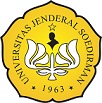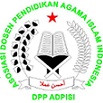Pemikiran Linguistik Sibawaih (147-180 H) dan Urgensinya bagi Studi Islam
Abstract
Mastering the structural linguistics of Arabic is the main keys to understand the Quran and Hadith. Sibawaih (147-180 H) is an Islamic thinkers who had a role in build the structural linguistic foundation of Arabic. This research aims to explore Sibawaih's classical structural linguistic thinking and its urgency for the development of Islamic studies. This research is a library research presented descriptively. The primary source is al-Kitab written by Sibawaih, while the secondary data is the other supporting data. The results showed that the nahwu codified by Sibawaih was integration among nahwu, bayan, and literature. Sibawaih used the authoritative method: sima'i and qiyasi in compiling nahwu. When explaining the grammatical structure, Sibawaih has not given the specific terminology in defining. Instead, he has discussed the procedures in placing the word in a sentence in detail. Sibawaih’s efforts have rationalized and completing the Arabic. His effort can be considered as an attempt to form a category of causality.
References
Abu Zayd, Nasr Hamid, Tekstualitas Al-Qur’an; Kritik Terhadap Ulum Al-Qur’an (Yogyakarta: LKiS, 2001).
Al-Thanthawi, Muhammad, Nasy`at Al-Nahwi wa Tarikh Asyhar an-Nuhat (Cairo: Dar al-Manar, t.t).
Amin, Ahmad, Dhuha al-Islam (Cairo: Maktabah al-Usrah, 1998).
Andalusi, Abu Bakar Muhammad bin Hasan al-, Thabaqat al-Nahwiyyin wa al-Lughawiyyin (Cairo: Dar al-Ma’arif, t.t).
Benmamoun, Elabbas, and Reem Bassiouney, The Routledge handbook of Arabic linguistics (London: Routledge, 2017).
Carter, Michael G. Sibawayhi, Makers of Islamic Civilization (London: Bloomsbury Academic, 2004).
Chaqoqo, Sri Guno Najib, Sejarah Nahwu: Memotret Kodifikasi Nahwu Sibawaih (Salatiga: LP2M Press IAIN Salatiga, 2015).
Dhaif, Syauqi, Madaris al-Nahwiyah (Kairo: Dar al-Ma’arif, 1968).
Dihe, Bustamin, ‘Konstruksi Pemikiran Sibawaih dalam Kajian Ilmu Nahwu’, Rausyan Fikr, 14.1 (2018): 89–112.
Hariri, al-Qasim ibn Ali al-, Al-Maqamat al-Hariri (London: Williams and Norgate, 1867).
Hasanayn, ‘Affaf, Fi Adillat an-Nahwi (Cairo: Maktabah al-Akadimiyyah, t.t.).
Hasnawi, Raja Aajeel Ajeel Ibrahim, and Maitham Abdel–Sada Shiblawi Al-Jelahawi, ‘Criticizing the Syntactic Angles through the Veracity of Meaning in Sibawaih: Content Consideration as a Nonpareil’, Al-Ameed Journal, 9.2 (2020).
Holmes, Janet. An Introduction to Sociolinguistics (London: Routledge, 2013).
Karim, Abdullah Jad al-, ad-Dars al-Nahwiy fi al-Qarni al-‘Isyrin (Cairo: Maktabah al-Adab, 2004).
Khilikan, Ibnu, Wafayat al-A’yan wa Anba` Abna` Zaman (Beirut: Dar ash-Shadir, t.t.)
Lappin, Shalom, and Chris Fox, The Handbook of Contemporary Semantic Theory (New Jersey: John Wiley & Sons, 2015).
Mahmud, Nayf Ma’ruf, Khashaish al-Arabiyah wa Tharaiq Tadrisiha (Beirut: Dar An Nafais, 1998).
Milah, Aang Saeful, ‘Qimah Kitab Sibawaih wa Juhud al-Lughawiyyin al-Arab al-Muashirin’, Arabiyat, 6.2 (2019), 322-41.
Nahlah, Muhammad Ahmad, Ushul an-Nahwi al-‘Araby (Beirut: Dar al-Ma’rifah, 2002).
Owens, Jonathan, ‘The Foundations of Arabic Linguistics Sibawayhi and Early Arabic Grammatical Theory’, Zeitschrift für Arabische Linguistik, 62 (2015): 96-104.
Rahmap, ‘Aliran Basrah: Sejarah Lahir, Tokoh, dan Karakteristiknya’, At-Turats 8.1 (2014).
Ramdiani, Yeni, ‘Kajian Historis Perkembangan Ilmu Nahwu Mazab Basrah’, El-Hikam 8.2 (2015): 293–318.
Safitri, Lis, ‘The Message of The Qur’ān Karya Muhammad Asad’, Maghza: Jurnal Ilmu Al-Qur'an dan Tafsir 4.2 (2019): 177-192.
Samarah, Abdullah Y., ‘Arabic Linguistics and Sibawayhi’, International Journal of Academic Research, 3.2 (2011): 937-944.
Sibawaih, Al-Kitab (Cairo: Maktabah al-Khanji, 1988).
Syairafi, Abi Sa’id as-, Syarh Kitab Sibawaih Vol. 1 (Damascus: al-Hai`ah ash-Shuriyyah, 1986).
Syauqy, Abu Khalil, Fi Tarikh Al-Islamiy (Beirut: Dar al-Fikr, 1991).
Tanukhi, Mufadhil ibn Muhammad at-, Tarikh al-‘Ulama an-Nahwiyyin min al-Bashriyyin wa al-Kufiyyin wa Ghairihim (Kairo: Hajr li ath-Thaba’ah wa an-Nasyr wa at-Tauzi’ wa al-I’lan, 1992).
Ujail, Saleh Khadim, ‘The Linguistic Avoidance in the Book of Sibawaih: A Study in its Analysis, Concept, and Justifications’, Basic Education College Magazine for Educational and Humanities Sciences 16 (2015): 368-393.
Wahab, Muhbib A, Epistemologi dan Metodologi Pembelajaran bahasa Arab (Jakarta: Lemlit UIN Jakarta, 2008).








